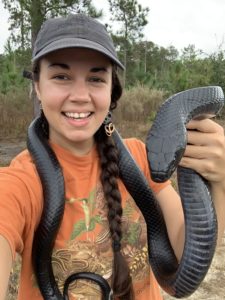The Value of an Internship

Internships are invaluable for undergraduates in so many ways. They allow students to gain practical experience in their chosen field, exposure to a work environment, and networking contacts for the future. However, not all internships are built alike: some organizations opt to pay their interns like employees and some only offer unpaid opportunities.
“Typically, organizations that are willing to pay their interns are invested in making sure the experience is beneficial for both the intern and the employer,” says Jennifer Krasilovsky, an educational adviser at the Jack Kent Cooke Foundation. She’s also the specialist on staff to guide Scholars in their career development journey. “They will view their interns as members of the team and will expect them to act professionally and contribute to the group’s goals. Oftentimes, companies are using internships as a vetting process to evaluate who will receive full-time job offers post-graduation.”
While an unpaid internship experience is still better than no experience at all, unpaid internships cause an equity problem. Students with more financial means are more likely to be able to take on an unpaid internship while students with financial need are more likely to pass up practical, resume-building experience so they can work to support themselves during the school year.
In an effort to level the playing field for our Scholars, the Cooke Foundation began the Internship Stipend Program a decade ago. Through the program, selected Scholars are eligible for a stipend of up to $6,000 while they complete an unpaid internship at a non-profit or government organization. This helps to bridge the gap between their peers with more financial means competing for the same internships.
“Our Internship Stipend Program acknowledges that there is a need for focused, professional opportunities for our students who are pursuing career fields in the non-profit or public services sectors,” Krasilovsky says. “Often, the organizations that can provide these experiences are working on limited or restricted budgets that prohibit them from being able to offer paid internships. By providing the Cooke Internship Stipend to our Scholars, we give them the financial support to be able to seek out these opportunities that will likely have more direct relevance to their career interests than a typical summer job.”
The Cooke Foundation provided nearly 60 stipends this year for Scholars to pursue unpaid internship opportunities at organizations like Teach for America and the Migration Resource Center.
Last summer, Cooke Transfer Scholar Kabryn Mattison received the stipend and was able to accept an unpaid research opportunity studying mercury levels at the Churchill Northern Studies Centre as a collaboration with the U.S. Geological Survey. Not only was it a once-in-a-lifetime chance to study in the subarctic, but it also helped set her apart from other recent graduates in her field and landed her a dream job – she is now a Reptile Conservation Research Technician for The Orianne Society.

Mattison says finding paid internship opportunities in wildlife conservation is notoriously difficult, and the stipend allowed her to think big rather than settle for an on-campus internship or none at all.
“Like many scholars, I am a nontraditional student who cannot afford to take weeks off to do unpaid internships,” Mattison says. “Opportunities like this, unfortunately, often only fall into the hands of students from secure financial means, who can be supported while they work for free.”
Some Cooke Scholars pursuing fields in the private sector still opt to find their own paid internships rather than apply for a stipend. Cooke Transfer Scholar Aman Waheed was a rising senior at the University of Virginia when he learned that internships are traditionally sought out in the fall, not in the spring like when he started looking. He persevered, however, and managed to receive and accept two offers: an unpaid internship with Greenbelt Venture Partners in Chicago and a paid one in San Francisco with Wells Fargo.
“When a company is paying you, they see you as an employee, as a contributor, so they’re going to give you the full scope of their resources,” Waheed says. “You can make a more informed decision at that point [about the field].”
Since the Wells Fargo internship was paid, he was able to live in San Francisco for the summer. For the Greenbelt opportunity, he was willing to start the unpaid internship at the end of his spring semester and complete the work online so he didn’t have to move to a new city.
“When you’re young, when money is a barrier, if you don’t have a laptop, or a place to stay…” Waheed says, “Other organizations, I hope they realize your students need resources.”
After graduation, Waheed was hired by Accenture and has since been promoted to a senior business analyst in the public healthcare sector. He says that the real world experience he received through his internship experience taught him what he liked and didn’t like about the finance field.
Whether a student is pursuing a field that tends to offer more paid internship opportunities or not, the Cooke Foundation believes that every student deserves an opportunity to gain meaningful internship experience. We encourage other scholarship providers to consider supporting their students in similar ways. For more information on our Internship Stipend model, click here.